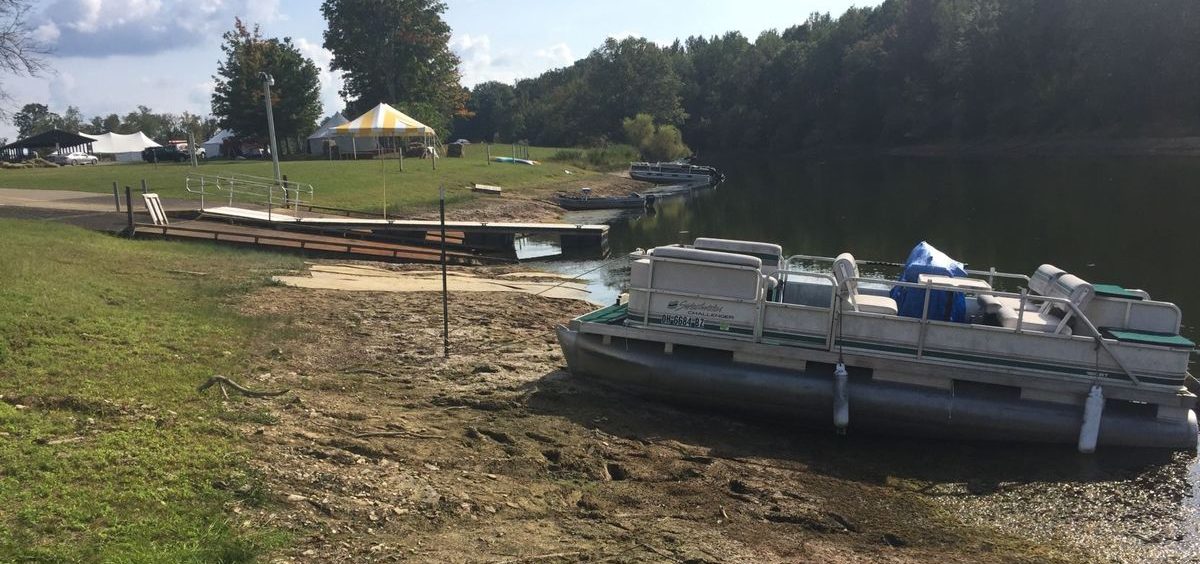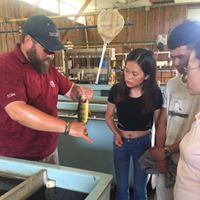
Lake Snowden Water Park could Threaten Area Aquatic Life
By: Kaitlin Kulich
Posted on:
An Ohio University professor of environmental studies said she fears Lake Snowden’s aquatic life could be harmed by construction of the water park expected to open this summer.

Water in the lake was lowered to prepare for the installation of inflatable slides and aquatic rides. The beach area will also be refurbished and expanded to accommodate the expected increase in people who will visit the lake.
Professor of Environmental Studies, Natalie Kruze, said because the lake was lowered the habitat for certain fish has shrunk.
She said more problems may arise when more people start to swim in the lake.
“We bring a lot of biological matter and kids pee a lot,” she said. “Yes, so do aquatic organisms, but you’re adding a lot of potential ammonia and nitrogen to that water that again could upset the balance of nutrients in it.”
Although the lake’s ecosystem may undergo some biological changes from swimmers, Kruse said environmental studies’ students at Hocking College are monitoring the lake and establishing protocols to protect aquatic life.

“They do a lot of assessments on the fish populations and a lot of student inquiry on the lake, so if there are changes I think it’s actually one of the few places that’s very well set up to see that,” she said.
Hocking College contributes $125,000 dollars annually to the lake. Hocking College President, Betty Young, said the school helps fund the lake because it provides outdoor activities and brings in money from tourism. She said she hopes tourist numbers will increase once the water park opens.

Sarah Webb, a social-work instructor at Ohio University who is frequently at Lake Snowden with her family, said she’s excited for the water park to open, but hopes steps will be taken to protect the wildlife.
“I’m concerned about the environmental impacts,” she said. “I’ve seen the water quality change as they have allowed more boats to come into the lake. The appearance, clarity and smell of the water is different than it used to be.”
The lake will continue to be used for educational purposes for Hocking students once the park is built.
As of now no significant changes in the lake’s ecosystem have been documented.

